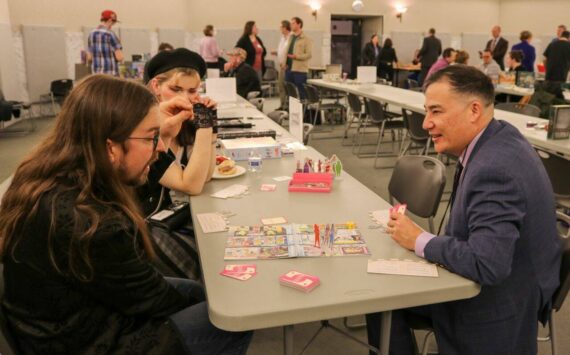The public is invited to participate in planning how Washington State will spend federal dollars designed to improve the quality of and expand access to the state’s career and technical education programs at a series of meetings that will be held in January.
The Workforce Training and Education Coordinating Board (WTB) will conduct five hearings to solicit ideas and comments on how it should spend federal money provided through the Carl D. Perkins Career and Technical Education Act of 2006. A draft five-year plan will be available at wtb.wa.gov by Jan. 7.
Career and technical educational (CTE) programs are courses that provide individuals with the knowledge and skills needed to prepare for careers in current or emerging employment sectors. CTE programs are usually geared towards careers that do not require a baccalaureate or higher degree to be successful.
The WTB staff invites the public, and particularly employers, labor organizations, educators, parents, students, and community organizations to present their views and make recommendations regarding the state’s five-year Perkins plan at any of the five hearings held around the state.
Locally, a public meeting is scheduled at Clover Park Technical College, 4500 Steilacoom Blvd. SW, Lakewood, on Tues., Jan. 15.
All meetings will be open for comment between 4 p.m. and 7 p.m. Written comment can be sent by Jan. 16 to Terri Colbert, program manager, Workforce Training Board, PO Box 42495, Olympia, WA 98504; or by email to tcolbert@wtb.wa.gov.
As the eligible state agency receiving the funds, the WTB partners with the Office of the Superintendent of Public Instruction and the State Board for Community and Technical Colleges to design programs that enable the state to provide quality career and technical education to meet performance measures.
The Perkins Act was adopted in 1998 and reauthorized by Congress in 2006. Last year, the Act provided states with roughly $1.3 billion with just over $25 million going to Washington State.
More Stories From This Author
NO. 24-4-00608-0 -AMENDED PROBATE NOTICE...
By Amanda Kahlke amanda.kahlke@tacomadailyindex.com
NO. 24-5-00095-6 -SUMMONS
By Amanda Kahlke amanda.kahlke@tacomadailyindex.com
No. 24-4-02288-8 KNT- PROBATE NOTICE...
By Amanda Kahlke amanda.kahlke@tacomadailyindex.com
No. 24-4-00377-3 -NOTICE OF SALE...
By Amanda Kahlke amanda.kahlke@tacomadailyindex.com
New Washington apple needs a name
By Laurel Demkovich / Washington State Standard
By Laurel Demkovich Washington State Standard For the Tacoma Daily Index • April 16, 2024 1:30 am
Why are these WA industry leaders heading to Japan to play games?
By Jerry Cornfield / Washington State Standard
By Jerry Cornfield Washington State Standard For the Tacoma Daily Index • April 17, 2024 1:30 am
Superior Court new cases
New criminal, civil, domestic and probate cases
April 18, 2024 1:30 am




